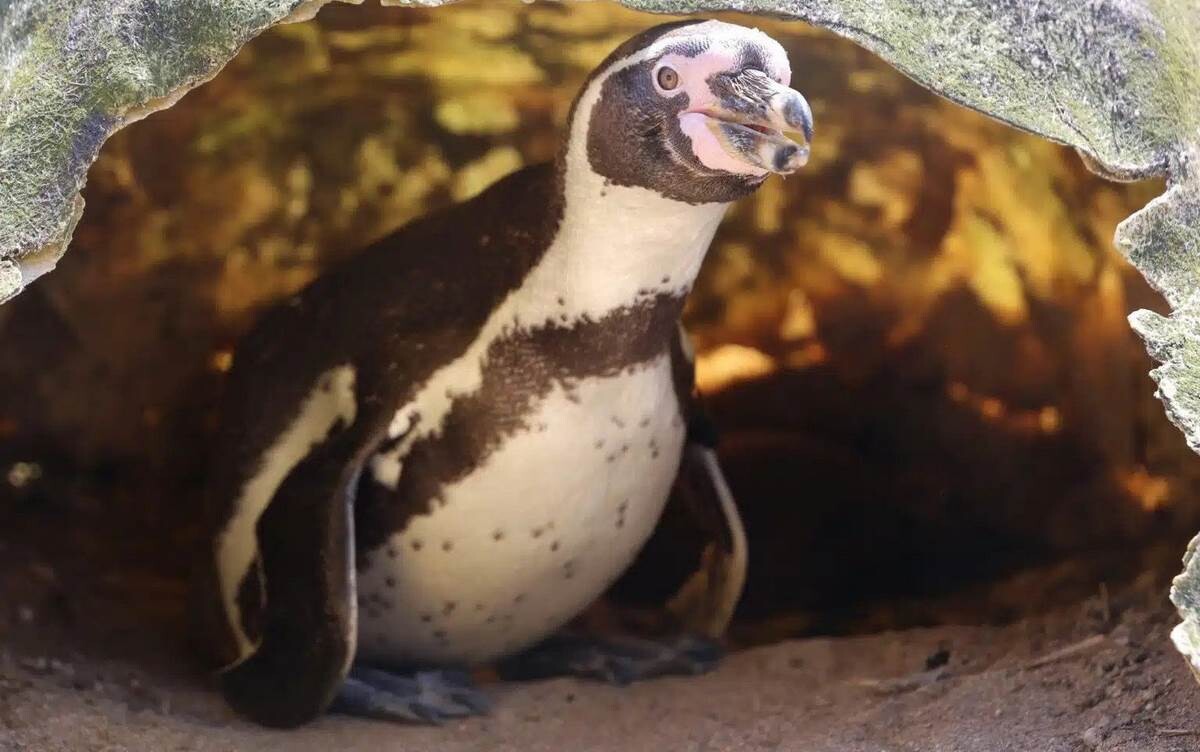Africa’s only resident penguin species is now officially critically endangered, according to a recent assessment by the International Union for Conservation of Nature (IUCN).
Over the past century, the African penguin (Spheniscus demersus) has suffered precipitous declines in its population.
In the mid-1950s, there were an estimated 141,000 breeding pairs of African penguins, or 282,000 mature individuals, mostly on small islands off the coasts of Namibia and South Africa. By 2023, this number plummeted to around 9,900 pairs, or 19,800 individuals — a 93% population decline over some 70 years.
According to the IUCN’s latest assessment, from July 2024, only about 1,200 penguin pairs are estimated to survive in Namibia, and 8,750 pairs in South Africa.
This trend of decline “currently shows no sign of reversing, and immediate conservation action is required,” the IUCN notes. The African penguin has been listed as endangered since 2010, but the persistent decline means its latest conservation assessment has worsened to critically endangered.
Several factors have contributed to the bird’s rapid decline. In the past, African penguins would burrow and lay their eggs in thick layers of guano, or bird poop, that had built up over centuries, to escape from heat and predators.
However, humans removed the guano to export as fertilizer, leaving the birds to nest in the open. More recently, the penguins have seen their food supplies, especially sardines and anchovies, decline due to both competition with commercial fisheries and climate warming.
Two conservation NGOs, BirdLife South Africa and the Southern African Foundation for the Conservation of Coastal Birds (SANCCOB), have filed a lawsuit against South Africa’s environment ministry for failing to protect the African penguin with meaningful fishing closures around the bird’s breeding colonies.
“SANCCOB will continue to fight for the future of this iconic species; we must remain optimistic that their trajectory can be reversed,” Natalie Maskell, CEO of SANCCOB, said in a statement in response to the new conservation assessment.
Richard Sherley, an ecologist at the University of Exeter, U.K., said the new status of critically endangered “highlights a much bigger problem with the health of our environment.”
“Despite being well-known and studied, these penguins are still facing extinction, showing just how severe the damage to our ecosystems has become,” Sherley said. “If a species as iconic as the African Penguin is struggling to survive, it raises the question of how many other species are disappearing without us even noticing.
We need to act now — not just for penguins, but to protect the broader biodiversity that is crucial for the planet’s future.”
This article by Shreya Dasgupta was first published by Mongabay.com on 4 November 2024. Lead image of African penguins by Pam Ivey via Unsplash (Public domain).
What you can do
Help to save wildlife by donating as little as $1 – It only takes a minute.







Leave a Reply